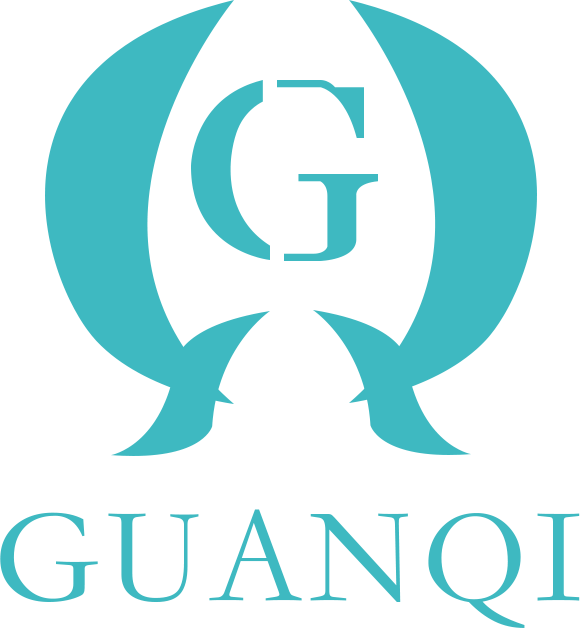The 10 Advantages of an Executive Desk
2025-06-05
An executive desk is more than just a piece of furniture; it is an essential part of the office environment that plays a significant role in a CEO’s productivity, leadership, and overall business success. Whether designed for a modern or traditional office, an executive desk is typically large, well-crafted, and thoughtfully designed to meet the unique needs of a top executive. Below, we will explore the ten key advantages of an executive desk, highlighting why this piece of furniture is so important for a CEO's office.
1. Symbol of Authority and Leadership
One of the most significant advantages of an executive desk is its symbolic importance. An executive desk is not just a work surface, but a representation of the CEO’s authority, leadership, and position within the company. A well-designed executive desk exudes power, professionalism, and success. The desk serves as a visual reminder to employees, clients, and stakeholders that the person behind it holds a top-tier position. The size, quality, and design of the desk contribute to how leadership is perceived within the organization.
The commanding presence of a large, well-crafted desk helps establish the CEO’s dominance in their office, enhancing their professional stature. It creates an environment where leadership can be taken seriously, setting the tone for meetings and corporate decisions.
2. Enhances Productivity and Efficiency
An executive desk is designed with functionality in mind, ensuring that the CEO has everything they need within easy reach. The desk is often spacious, allowing for the organized placement of documents, technology, and other essential items. Many executive desks are equipped with drawers or compartments to store files, making it easier for the CEO to maintain an organized workspace.
With ample space to spread out work, a CEO can manage multiple tasks simultaneously, improving overall productivity. Whether it’s signing contracts, reviewing documents, or handling correspondence, an executive desk offers a surface that facilitates a smooth workflow, promoting efficiency.
3. Facilitates Comfortable Work Environment
A key benefit of an executive desk is the comfort it provides to the CEO. The desk is usually designed with ergonomics in mind, offering a comfortable working height and sufficient space for the CEO to sit for extended periods without feeling cramped. The choice of materials, such as a high-quality leather chair or soft wood finish, adds to the overall comfort level.
Having a well-designed desk also supports healthy posture. For instance, adjustable-height desks can allow the CEO to alternate between sitting and standing, reducing the risk of back pain and improving overall well-being.
4. Promotes a Professional Atmosphere for Meetings
A CEO’s desk is often the focal point during meetings with clients, investors, or senior management. An executive desk creates a professional atmosphere that helps set the tone for discussions. The large, impressive design of the desk can elevate the sense of importance for business conversations and lend an air of respect to those who enter the CEO’s office.
An executive desk is usually positioned in such a way that it facilitates communication and interaction with visitors. For example, many desks are placed facing the door or positioned centrally within the office, allowing the CEO to maintain a dominant and engaged role in any meeting.
5. Reflects Personal Style and Corporate Culture
The design of an executive desk reflects not only the CEO’s personal taste but also the overall culture and values of the company. For instance, a CEO who values tradition and stability may opt for a classic wooden desk, while a CEO focused on modernity and innovation might choose a sleek, minimalist desk made from glass and metal.
The desk also sets the mood for the office and influences how employees and visitors perceive the company. The choice of materials, finishes, and the overall layout can signal whether the company is conservative, creative, forward-thinking, or customer-focused.
6. Improves Organization and Storage Capacity
An executive desk typically comes equipped with a variety of storage options, such as filing cabinets, drawers, and built-in compartments. This helps the CEO maintain an organized office, ensuring that important documents, personal items, and business materials are stored safely and within reach.
A well-organized desk can help reduce clutter and prevent the loss of essential materials. With the right amount of storage space, a CEO can keep their office neat and tidy, which in turn improves their focus and efficiency.
7. Integrates Technology Seamlessly
In today’s digital age, the integration of technology into the workplace is essential. An executive desk is designed to accommodate the latest technological tools, from computers to smartphones to video conferencing equipment. Many modern executive desks come with built-in docking stations, cable management systems, and charging ports to keep wires organized and out of sight.
Additionally, some desks are equipped with smart features, such as touch-screen controls for managing lighting or temperature, or built-in sound systems for conference calls. This level of technological integration helps the CEO stay connected and organized without the distraction of tangled wires or inefficient setups.
8. Customizability for Personalized Needs
Another advantage of an executive desk is its high degree of customizability. Given the diverse needs of CEOs, these desks are often designed to be flexible in terms of size, layout, and features. Custom-built executive desks can cater to specific needs, such as additional space for a large number of files, integrated conference call equipment, or specialized drawers for securing sensitive documents.
Customizability also allows the CEO to choose finishes, materials, and desk configurations that best suit their personality and work habits. Whether they prefer a more minimalist approach or a desk with additional storage space, customizability ensures that the desk is tailored to the individual’s specific requirements.
9. Encourages Better Time Management
Time management is a critical aspect of a CEO’s success. An executive desk, with its ample surface area and organizational features, helps streamline the process of prioritizing tasks. By having clearly defined spaces for files, devices, and personal items, a CEO can quickly access the resources they need, minimizing wasted time.
Moreover, an organized desk can help a CEO plan and schedule meetings and tasks efficiently, keeping their workday on track. The desk acts as a personal hub where the CEO can stay on top of appointments, deadlines, and important decisions, promoting better time management and productivity.
10. Provides a Sense of Stability and Confidence
Finally, an executive desk provides a sense of stability and confidence, both for the CEO and the people who interact with them. The physical presence of the desk, particularly if it’s well-designed and imposing, can create a sense of calm and order in the office. For the CEO, having a well-appointed and organized workspace fosters confidence and professionalism, while for employees and visitors, it signals that the individual sitting behind it is in control.
A CEO who sits behind an executive desk that reflects their leadership style will often feel more empowered and capable of making critical decisions. It provides a sense of ownership over their environment, which can help boost morale and create a positive, productive office atmosphere.
Conclusion
In conclusion, an executive desk is a multifunctional piece of office furniture that offers numerous advantages. It serves as a symbol of authority, enhances productivity, provides comfort, and contributes to the professional atmosphere of the office. Its spacious design and organizational features promote efficiency and time management, while its integration of technology ensures that the CEO is well-equipped for modern business challenges.
Beyond its practical benefits, the executive desk also offers the opportunity for personal expression, reflecting both the CEO’s individual style and the company’s corporate culture. By providing a sense of stability, confidence, and leadership, an executive desk plays a crucial role in shaping the CEO’s ability to succeed in the competitive business world.
Previous page
Recommended news








